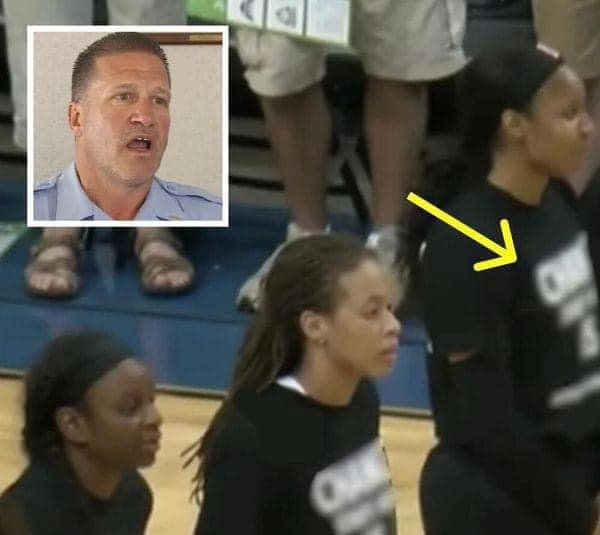During a pivotal WNBA Lynx game in Minneapolis, a significant moment of activism unfolded when four off-duty police officers, hired to provide security for the event, abruptly walked off their posts. Their decision was prompted by the players’ bold choice to wear black t-shirts emblazoned with the names of two Black men, including Philando Castile, who was tragically shot and killed by police during a routine traffic stop in Minnesota. This incident, along with others, has fueled national conversations about police brutality and racial injustice.
The players’ shirts also displayed a Dallas police badge in memory of five officers killed in the line of duty, along with the phrase “Black Lives Matter.” During a pre-game press conference, the players explained their intent: to honor the lives lost, mourn the tragedies, and advocate for systemic reform.
However, the officers perceived the shirts as offensive and requested team officials to instruct the players to remove them. When the team refused, the officers left their posts. The president of the police federation, Lt. Bob Kroll, criticized the protest, labeling it as “anti-police” and accusing the players of perpetuating a “false narrative” about law enforcement. He argued that fans came to enjoy basketball—not political statements.
Police Chief Condemns Walkout
Minneapolis Police Chief Janeé Harteau addressed the controversy, acknowledging the officers’ frustration but condemning their decision to abandon their responsibilities. She emphasized that walking off the job undermined public trust and violated the department’s core values. Minneapolis Mayor Betsy Hodges also denounced Kroll’s comments as inflammatory, stating that they did not reflect her position on the matter.
Players and Teams Unite for Justice
Despite the backlash, the Lynx players remained steadfast in their mission, continuing to wear the shirts in subsequent games. Their courage inspired solidarity across the league, as other WNBA teams donned similar apparel to amplify the conversation surrounding police brutality, racial profiling, and systemic violence.
The Lynx players’ actions showcased the power of sports as a platform for social change. Their unity sent a clear message that the fight for racial justice transcends the basketball court, sparking meaningful dialogue nationwide.
Broader Implications of the Walkout
The officers’ decision to leave their posts ignited debate about the intersection of personal beliefs and professional responsibilities. Critics argued that the officers’ actions undermined their contractual obligations and damaged public trust. This incident highlighted the tension between law enforcement and marginalized communities, underscoring the need for reform and accountability.
The event also spotlighted the challenges athletes face when merging personal convictions with their professional roles. While the Lynx players sought to advocate for justice, their actions were met with resistance from those who viewed their protest as anti-police. This conflict illuminated the complexities of activism in professional sports.
Community Support and Advocacy
Civil rights organizations, advocacy groups, and fans rallied behind the Lynx players, applauding their bravery in addressing difficult societal issues. High-profile figures in entertainment and politics also voiced their support, emphasizing the importance of raising awareness about police brutality and racial inequality.
WNBA’s Stance on Activism
The WNBA has a longstanding history of supporting player activism, and this incident was no exception. By allowing players to wear the shirts, the league demonstrated its commitment to fostering an environment where athletes can express their beliefs. The solidarity shown by teams across the league reinforced the power of collective action in driving meaningful conversations.
Lessons from the Incident
This controversy serves as a critical reminder of the importance of dialogue and mutual understanding in addressing social justice issues. The actions of the Lynx players exemplified the potential for sports to inspire change, while the officers’ response highlighted the challenges of balancing personal beliefs with professional duties.
For law enforcement, the incident emphasized the need to prioritize professionalism and community trust. For athletes, it underscored the power of persistence and solidarity in advocating for reform.
A Catalyst for Change
The Lynx players’ protest and the subsequent fallout have left a lasting legacy, sparking conversations about racial justice and police accountability. Their unwavering commitment to their cause has inspired others to take a stand, proving that the pursuit of equality and systemic reform is a collective effort.

